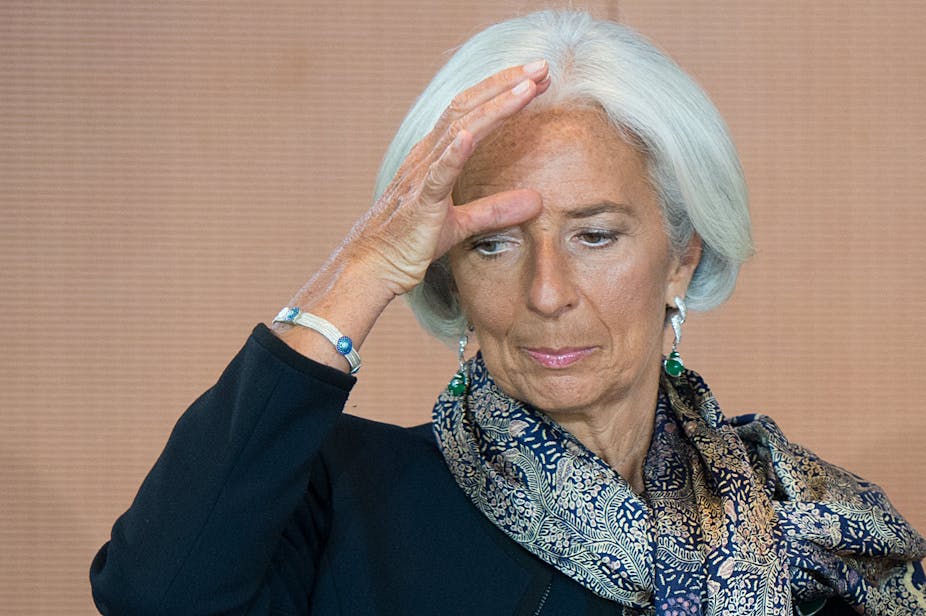To have one leader investigated for serious misconduct may be regarded as misfortune; to have two come under investigation looks like carelessness. But the International Monetary Fund finds itself in that position.
Following the Dominique Strauss-Kahn saga, when the head of the IMF was forced to resign after being charged with sexual misconduct, there now comes the news that its current head, Christine Lagarde has been placed under formal investigation for her alleged role in the Bernard Tapie affair. Lagarde denies the charges, and insists she will not resign.
Importance of leadership
Whether or not she does resign, a cloud will still hang over Lagarde and, just as importantly, over the IMF. Rightly or wrongly, the public reputation of an organisation is closely synchronised with the character and personality of its leader. People’s trust in an organisation is proportionate to the trust reposed in its leaders.
This is true of any organisation, be it a business, an NGO, a faith group, a government, an army unit or a sporting organisation. Think of Bernie Ecclestone, whose bribery charges have been dropped by the German government and who is now free to carry on as CEO of Formula One Management. But whatever happened in that Bavarian courtroom, there will always be whispers about Ecclestone, just as there are whispers about Formula One.
Trust and responsibility
This is particularly important given the IMF’s position as one of the guardians of global fiscal responsibility. Governments, financial institutions and people have to feel that they can trust the IMF and, fundamental to that, they have to feel that they can trust its leader. If there is even a shadow of doubt, then uncertainty will set in; and more uncertainty is exactly what the world financial system does not need right now. (The Middle East and the Ukraine are providing more than enough uncertainty already, thank you.)
The IMF knows how important trust is. Its own website is full of talk of transparency, good governance, values. It realises that trust closely correlates with stability.
It follows that the IMF needs leaders who inspire trust, whom others will see as being steady and reliable, who will be able to concentrate on doing their job without having to fend off whispers and allegations. This is in no way to criticise Christine Lagarde, who is a highly competent person and may very well be entirely guilt-free in this matter. But, given that this issue was there in her past, it’s worth questioning whether the IMF did the right thing in inviting her to be its leader.
A lesson for all
There is a clear lesson here for every organisation, large or small. When choosing leaders, do due diligence on their past records. Look at what they have done, affairs they have been involved in and whether these might at some future date comes back to bit them, and their organisations.
No matter how briefly they have been touched by scandal, no matter their guilt or innocence, there is still a threat, still a risk. And if you know that someone carries a risk with them, and you appoint them anyway, and then it blows up in your face; well, you deserve what you get. Just don’t take down the global economic system with you.
Does this sound harsh? To some, undoubtedly it will. No one is perfect and everyone should be guilty until proven innocent. Plus, people make mistakes and deserve second chances. But this is not about individuals. It is about organisations, and in this case it is also about the economic and financial stability of the globe. That is bigger than any individual. Our need to see justice done to one person should not trump the need for the organisation to retain the trust of its many stakeholders.
I hope Christine Lagarde keeps her job. I have always admired her; she is a woman who has taken on the male-dominated world of finance, and made her mark on it. But whenever and under whatever circumstances she does depart, the IMF needs to read its own website and start living those values. There needs to be absolute transparency about the selection of the next leader, and it must be clear to everyone that this leader has been chosen because he or she can inspire trust and confidence.

